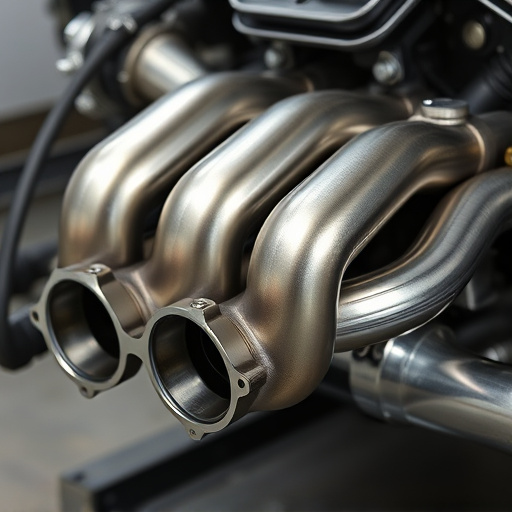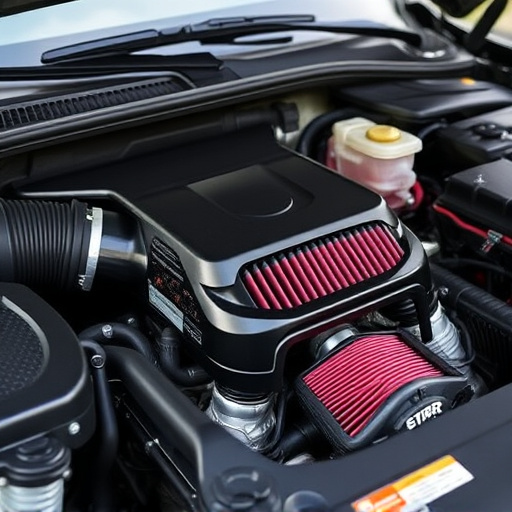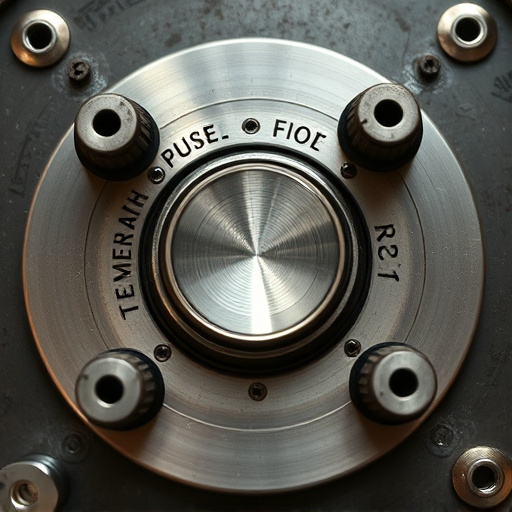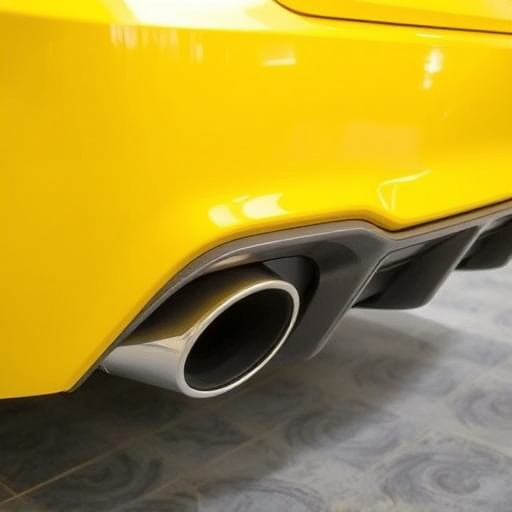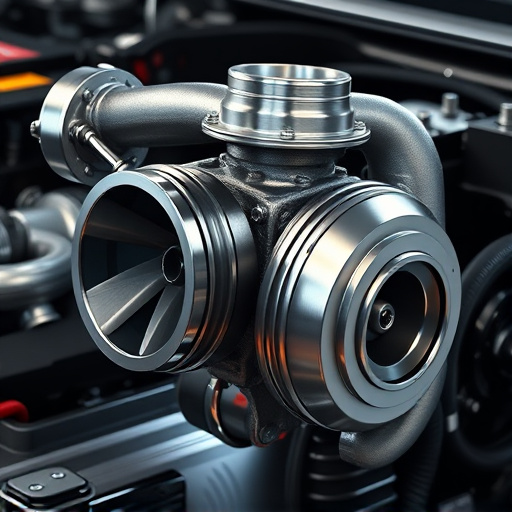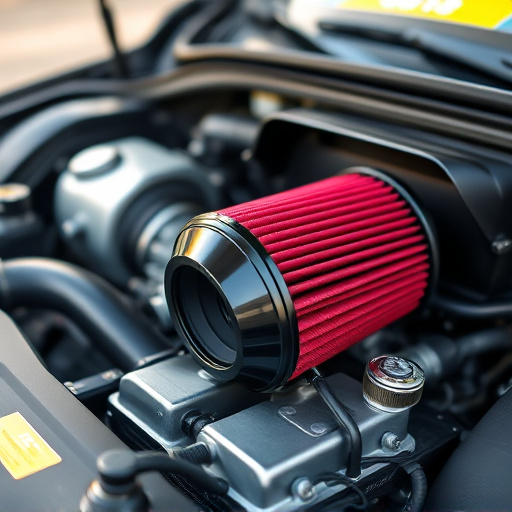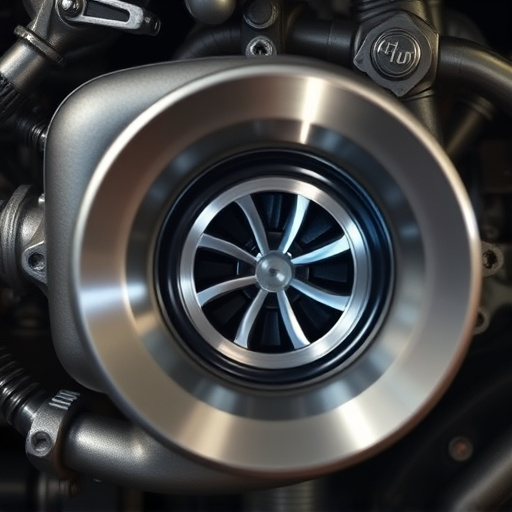Engine air intake is vital for internal combustion engines, filtering contaminants and balancing airflow for power generation. It significantly influences emissions control, performance, and fuel efficiency. Modifications to intake components can affect emissions levels, while advanced systems optimize air distribution for complete combustion and reduced pollutants like NOx. Upgrades like coilover kits and high-flow filters enhance handling and efficiency while maintaining emission controls integrity.
Engine air intake, a fundamental component of any internal combustion engine, plays a pivotal role in both emissions control and overall vehicle performance. By regulating the flow of atmospheric air into the engine, it directly impacts the efficiency of emissions control systems designed to reduce pollutants. This article delves into the intricate relationship between engine air intake and emissions control, exploring its basic principles, significance in modern vehicles, and the trade-offs between performance and environmental compliance.
- Understanding Engine Air Intake Basics
- Role in Emissions Control Systems
- Impact on Vehicle Performance and Efficiency
Understanding Engine Air Intake Basics
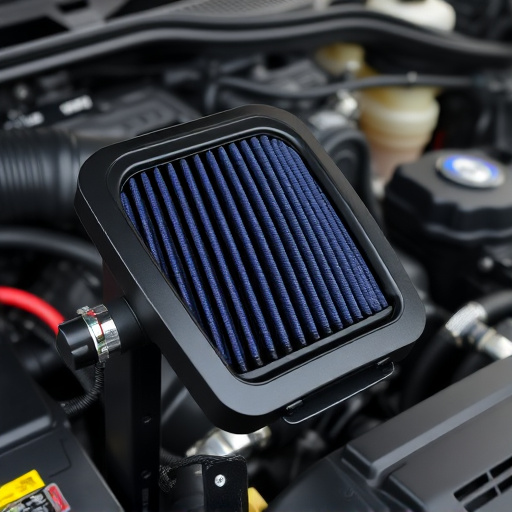
Engine air intake is a fundamental component in any internal combustion engine. It serves as the entry point for atmospheric air, which is then compressed and mixed with fuel to create power. The process begins with the air filter, which traps contaminants like dust, dirt, and other particles from entering the engine. This ensures that only clean air, essential for optimal combustion, reaches the cylinders.
Understanding how engine air intake functions is crucial when considering emissions control systems. As air flows through the intake, it can affect the efficiency of these systems, particularly in reducing pollutants like nitrogen oxides (NOx) and particulate matter. Factors such as air flow rate, temperature, and pressure at the intake play a significant role. Modifying these parameters through components like high-flow air filters, cold air intakes, or even upgrading suspension kits can have an impact on emissions levels. Even exhaust tips, while primarily designed for sound reduction, can influence engine performance and, consequently, emissions output.
Role in Emissions Control Systems
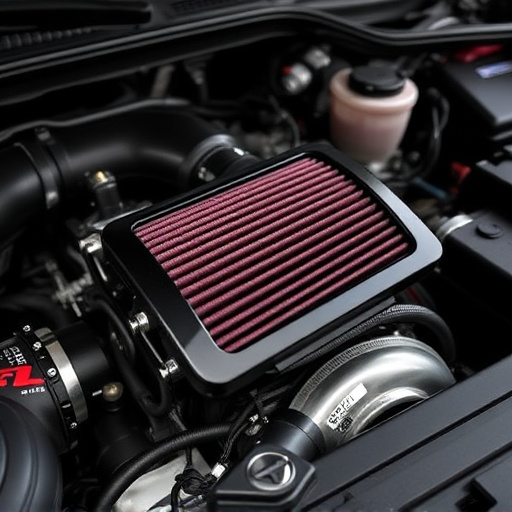
The engine air intake plays a pivotal role in emissions control systems by regulating and optimizing the airflow into an internal combustion engine. It acts as the gateway, filtering out contaminants and ensuring the right balance of air and fuel for efficient combustion. This process is crucial for minimizing harmful emissions, such as carbon monoxide and nitrogen oxides, which are major contributors to air pollution.
Effective air intake systems incorporate various components designed to enhance performance while adhering to environmental standards. High-performance parts, including advanced air filters and precision metering devices, can significantly reduce emissions by improving air distribution and fuel mixing. Even crucial elements like brake rotors, though not directly related, contribute to overall system efficiency, ensuring the engine operates smoothly and within mandated emission limits.
Impact on Vehicle Performance and Efficiency
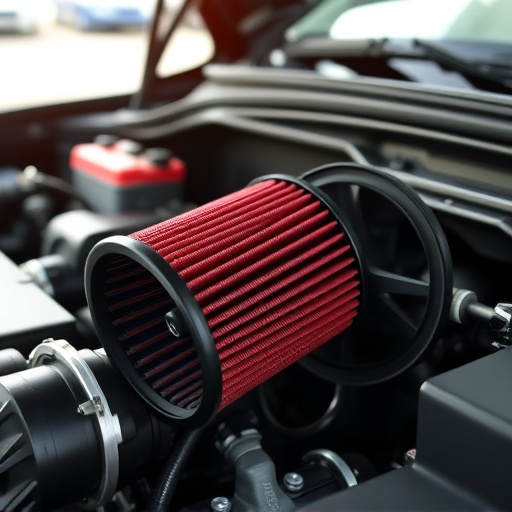
The engine air intake plays a pivotal role in both vehicle performance and efficiency. It is the entry point for atmospheric air into the combustion chamber, and its design directly impacts how well the engine burns fuel. A well-optimized air intake system ensures that the engine receives the right amount of air, promoting complete combustion and maximizing power output. This is particularly important as modern emissions control systems rely on precise air-fuel ratios to meet regulatory standards.
Efficiency gains from optimized air intake extend beyond performance. By ensuring a steady supply of clean air, these systems can improve fuel efficiency by minimizing oxygen fluctuations in the engine. This benefit is further enhanced when coupled with advanced emission control technologies like catalytic converters and selective catalytic reduction (SCR) systems. For enthusiasts looking to fine-tune their vehicles, considerations such as upgrading to coilover kits or high-flow performance air filters can offer additional advantages in both handling and efficiency, while also maintaining the integrity of modern emissions controls.
Engine air intake plays a pivotal role in emissions control systems, as it directly influences vehicle performance and efficiency. By understanding the basics of engine air intake and its impact, car owners can make informed decisions to optimize their vehicles’ environmental performance. The right adjustments to air intake systems can significantly reduce emissions, enhancing both the longevity of the engine and the overall ecological footprint of the vehicle.







